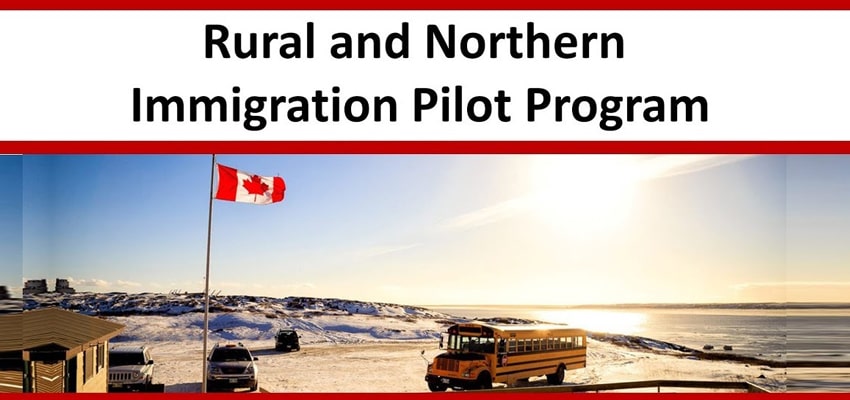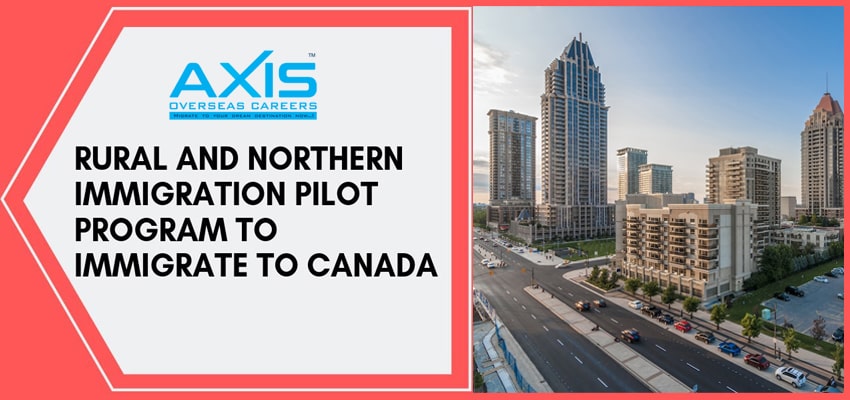Rural and Northern Immigration Pilot Program (RNIP)
The Rural and Northern Immigration Pilot (RNIP) is a federal pathway for foreign nationals to work and obtain Permanent Resident status in Canada, similar in some respects to the Manitoba Provincial Nominee Program’s Strategic Initiatives., Rural and Northern Immigration Pilot is a community driven program that proposes to assist and support rural communities with labour market shortages and regional economic development. In addition, one obvious difference being that the Rural and Northern Immigration Pilot is community driven whereas the MPNP Strategic Initiatives are employer driven.

Rural and Northern Immigration Pilot Program Eligibility criteria
To be eligible for the Rural and Northern Immigration Pilot Program (RNIP), you must meet all these requirements.
- You must have qualifying work experience or have graduated from a publicly funded post-secondary institution in the recommending community.
You must have a genuine job offer to work in one of the participating communities. (The job you’re offered must meet all of these requirements.
- The job must be full time; this means mean you work at least 30 paid hours per week. The job must be non-seasonal. In general, this means you have consistent and regularly scheduled paid employment throughout the year.
- You must meet the minimum language requirements based on the NOC category that applies to the job offer in the community. This can either be the: Canadian Language Benchmarks (CLB) or Niveaux de compétence linguistique canadiens (NCLC). The minimum language requirements for each NOC category are NOC 0 and A: CLB/NCLC 6, NOC B: CLB/NCLC 5, NOC C and D: CLB/NCLC 4. You must submit your results from a designated language test. These results must be less than 2 years old when you apply.
- You must meet or exceed the educational requirements. You must have a Canadian high school diploma or an Educational credential assessment (ECA) report from a designated organization or professional body, showing that you completed a foreign credential that’s equal to Canadian secondary school (high school), the ECA report must be less than 5 years old on the date of your application. The original ECA report must have been issued on or after the date the organization was designated.
- You must prove you have enough money to support your transition into the community
- You must intend to live in the community
- You must get a recommendation from 1 of the communities participating in the pilot.
They decide who to recommend based on
- your intent to live in the community
- your work experience and skill set
- your job offers in the community and the economic needs of the community
- your ties to the community
You need 1 year of continuous work experience (at least 1,560 hours) in the past 3 years.
(To calculate your hours of work experience. Count the hours worked in part-time and full-time jobs, the hours must be in 1 occupation, but they can be with different employers, the hours must be over a period of at least 12 months, these working hours can be inside or outside Canada, if you worked in Canada, you must have been a temporary resident with authorization to work in Canada, Don’t count hours you weren’t paid for; volunteering or unpaid internships don’t count, Don’t count hours when you were self-employed.
Your work experience must include a substantial number of the main duties and all the essential duties listed in your National Occupational Classification (NOC), the activities listed in the lead statement of your NOC).
Two Rural and Northern Immigration Pilot (RNIP) communities now accepting applications
- Sault Ste. Marie, Ontario
- Thunder Bay, Ontario
- Altona/Rhineland, Manitoba
Rural and Northern Immigration Pilot
RNIP Application process
The first step in the immigration process through the Rural and Northern Immigration Pilot is to obtain an eligible job offer from an approved employer in one of the participating communities.
Candidates with an eligible job offer then apply for a community recommendation and, if approved, submit an application for Canadian permanent residence from IRCC.
Eligibility criteria for Sault Ste. Marie and Altona/Rhineland
Beyond the mandatory job offer, candidates must meet both federal requirements and community criteria that vary from one municipality to another.
Both Sault Ste. Marie and Altona/Rhineland are using their own points-based systems to prioritize candidates for recommendation.
Candidates applying to Sault Ste. Marie, for example, will have to obtain a minimum score of 70 or above based on the following requirements:
- a job offer in one of 22 priority occupations
- at least two years of work experience in that occupation
- the applicant’s age (18 to 47 only)
- at least one year of full-time work experience in Sault Ste. Marie
- at least a year of post-secondary studies in Sault Ste. Marie
- the applicant is already a resident of Sault Ste. Marie
- personal ties to established members of the Sault Ste. Marie community
- immediate family (parent, sibling or child who is a Canadian citizen or permanent resident)
- extended family member (grandparent, uncle, aunt, cousin, niece or nephew), a friend or a representative of an established community organization who is a Canadian citizen or permanent resident.
- a visit to Sault Ste. Marie of at least five nights within the past three years that included meetings with at least two employers in the applicant’s line of work
- authentic knowledge of and interest in a “recreational, cultural, or lifestyle activity” in Sault Ste.Marie
Candidates with a spouse or common-law partner will also receive points for the following:
- spouse or common-law partner with a valid job offer in a priority occupation OR at least two years of full-time, continuous work experience in a priority occupation
- spouse or common-law partner with a Canadian Language Benchmark (CLB) of 5 in each category (writing, reading, oral and listening)
Rural and Northern Immigration Pilot: Fee Structure
Extra Charges:
1st Stage:
WES Fee: Approx.: 250 – 300 CAD (INR 16000) Paid by the client separately to WES
IELTS Fee: INR14,000/- per adult Paid by the client separately
Government Fee
Principal Applicant – CAD $1000 (INR – 50,000)
Spouse – CAD $1000 (INR – 50,000)
Each dependent child – CAD $171 (INR – 9,000)
Settlement funds required for a Quebec immigration applicant
Principal Applicant – CAD $8,722 (INR – 4,35,000)
Spouse – CAD $ 2136 (INR – 1,10,000)
Child Per Head Under 18years- CAD $1000 (INR – 50,000)
Medicals: Approx. INR 5000/- per head
Flying Expense: Approx. INR 45,000/-

Comments are closed.